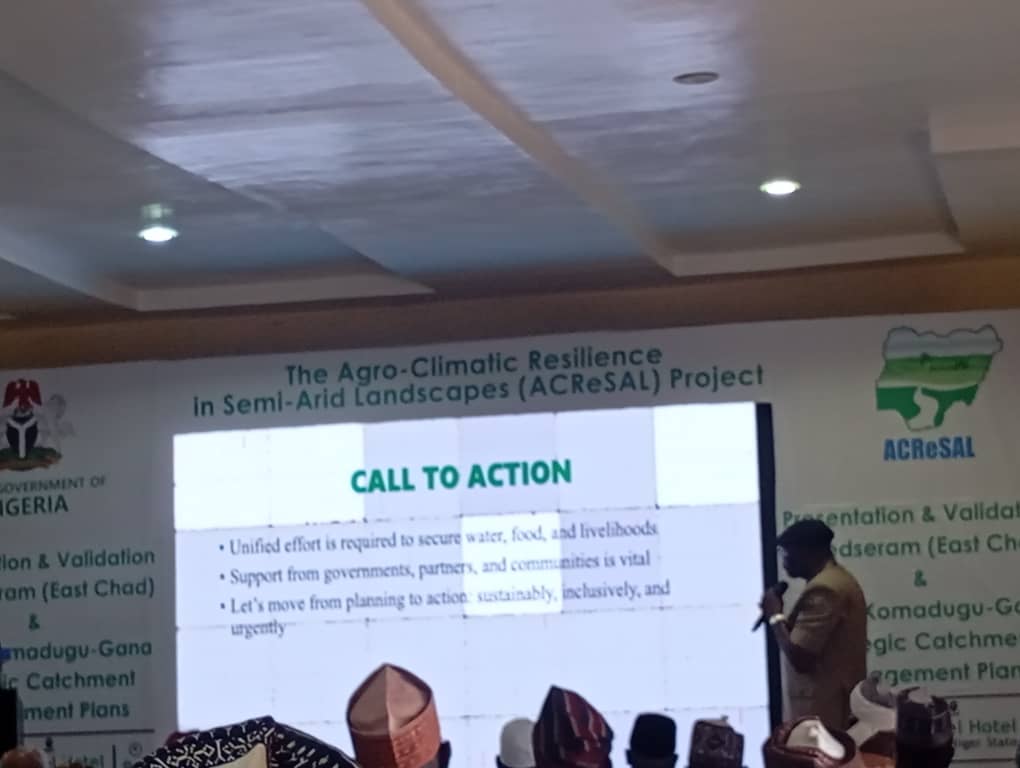The Agro-Climatic Resilience in Semi-Arid Landscapes Project (ACReSAL) has given engineers handling the Mokwa Environmental Reclamation project a two-week deadline to submit a reverse engineering document that will guide the implementation of the initiative.
Niger State Project Coordinator, Raji Shehu Adam, disclosed this during the Hybrid Implementation Support Mission organized by the World Bank team and the Federal Project Management Unit. The event, held in Minna, brought together stakeholders from the 19 ACReSAL-participating states and the Federal Capital Territory.
Adam explained that the support mission aims to build participants’ technical capacity in land measurement and data reporting.
“The objective is to equip participants with technological and scientific skills on how to calculate hectares accurately and report ACReSAL activities effectively,” he stated.
Speaking at the session, the National Project Coordinator of ACReSAL, Abdulhamid Umar, said the team’s visit to Niger State was part of a broader effort to support state-level implementation. He noted that the Federal Government has contracted the development of 20 Strategic Management Plans across the participating states and the FCT.
“We are here to ensure states are on track with implementation and to provide necessary guidance and support,” Umar said.
Task Team Leader, Dr. Joy Iganya Agane, called for continued commitment from state governments to sustain the outcomes of the ACReSAL project beyond the duration of the World Bank’s involvement.
“Sustainability at the state level is critical to the long-term success of this initiative,” she emphasized.
Also speaking, Niger State Commissioner for Environment and Climate Change, Alhaji Yakubu Muhammad Kolo, highlighted the importance the state places on its partnership with ACReSAL.
“Governor Muhammad Umar Bago has identified ACReSAL as one of the state’s key partners in water and environmental conservation,” he said.
The Hybrid Support Mission reflects ongoing efforts to strengthen environmental resilience and climate-smart land management in Nigeria’s semi-arid regions.

